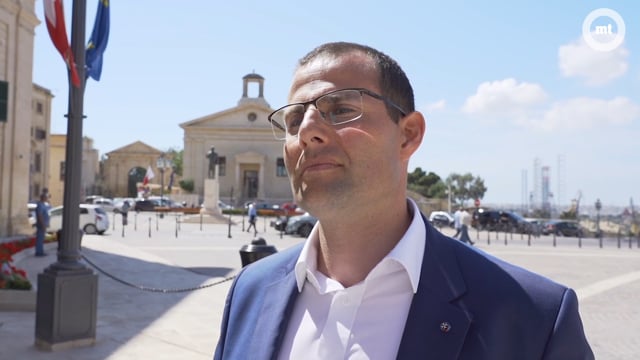[WATCH] Amnesty criticism was ‘unjust’ as Robert Abela blames media for public outcry
Prime Minister Robert Abela admits that a mechanism to contest fines, including COVID-19 fines, already exists but defends his use of the word amnesty, insisting it was all about compassion for ‘genuine’ cases


Robert Abela has blamed the media for flagging the word “amnesty”, which he himself used yesterday when referring to the possibility of pardoning fines for social distancing.
The Prime Minister defended his words, insisting the issue was about compassion towards genuine cases involving people who were fined and did not know how to contest the summons.
Abela was answering media questions on Monday morning after a public outcry over his use of the word amnesty during an interview on One TV.
The PM faced flak from police unions, doctors and nurses when he suggested a mechanism for amnesty for those “genuine cases” who flouted social distancing rules.
READ ALSO:
- Doctors, nurses unions say PM’s talk of COVID amnesty was shocking and reckless
- Police association peeved off by PM’s COVID amnesty
Restrictions on public gatherings were enforced to limit the spread of COVID-19 and fines were introduced to act as a deterrent.
Abela insisted on blaming the media for the outcry, adding there were genuine cases involving old people who would be impoverished by a €100 fine.
A mechanism to contest fines already exists - the petitions board - which made the Prime Minister’s comment unnecessary unless it is intended to create some new regime. Abela also floated the possibility of refunding fines that have already been paid.
Abela acknowledged as much on Monday, adding that there is a mechanism which people can use to contest fines, including those related to COVID-19.
However, he added that there were genuine cases of old people who did not know how to access this mechanism.
“A blanket amnesty was never on the table and those who broke the rules blatantly will be expected to pay,” Abela said, insisting he was only referring to “genuine cases”.
The Prime Minister also defended his decision to reopen bars and gyms on Friday, a move that earned him criticism from public health doctors, and the unions representing doctors and nurses.
Abela rebutted accusations that he was ignoring the recommendations of the Public Health Superintendent by forging ahead with the decision to reopen bars.
The next batch of restrictions to be lifted on Friday comes less than three weeks since the last set of measures were withdrawn.
The public health authorities have until now, always insisted on a three-week period of observation between the lifting of one set of restrictions and another.








.jpg)




.jpg)






.png)

